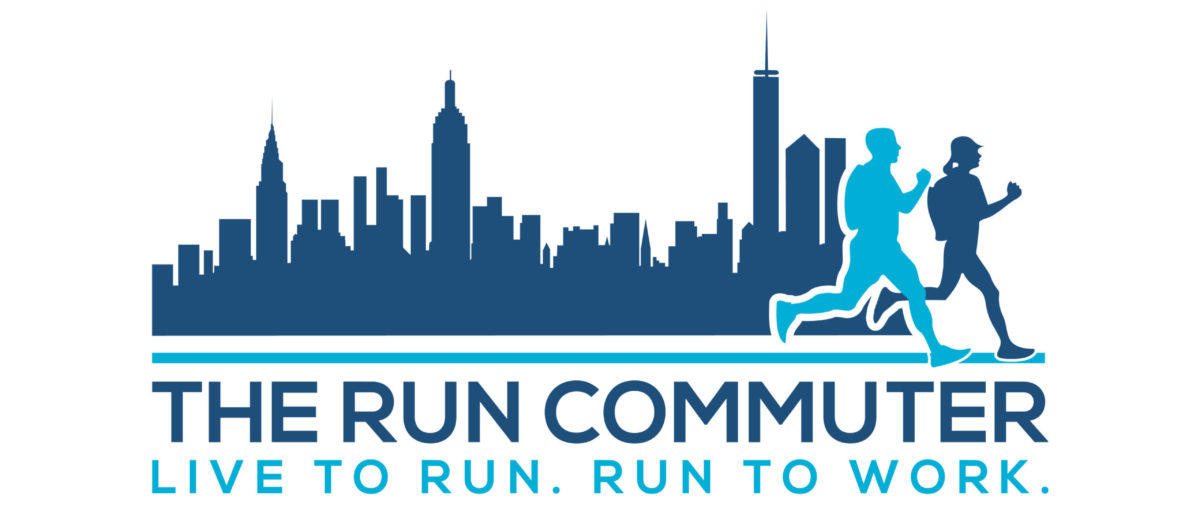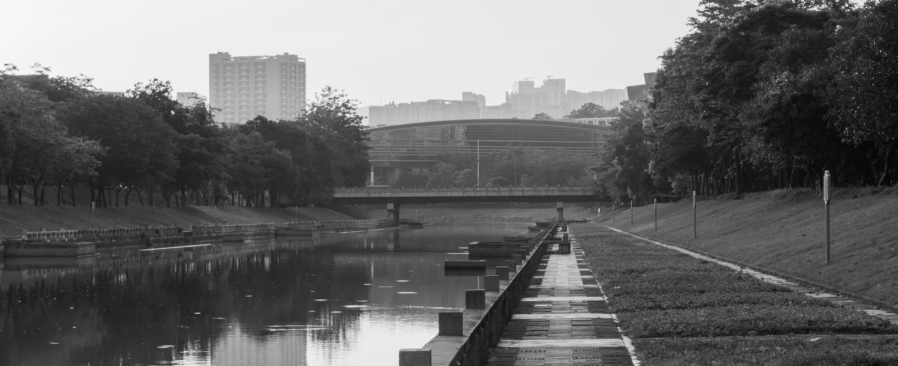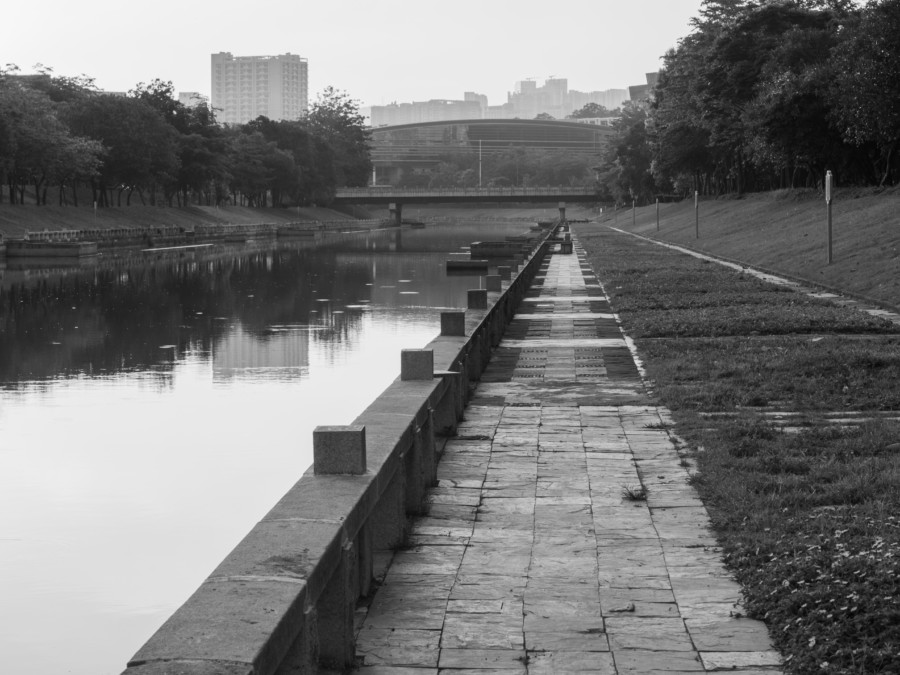The path along the canal where I am run commuting this summer, at the Peking University Shenzhen campus.
“You are very mild,” someone said to me the other day. She meant it as a compliment; she said that she had a similar demeanor. That surprised me. Most of my life, as a child and adult, I’ve been considered more belligerent, rude, grouchy, and sarcastic.
I attribute the progress to run commuting. Physical health and mental health are bound together in a cycle either vicious or virtuous. Regular exercise has positive effects for body and mind. How we interact with one another depends on how we feel inside ourselves. Science can confirm such effects. We do not have to be aware of our emotions to have our lives determined by them, and, for that matter, our unconscious selves may have the better of the ego we deem to be our own identities.
Run commuting has improved my personality. It has increased my forbearance, patience, and resilience. These traits are all important. They have nothing to do with my intelligence or the skills I have developed. Yet they make me a better employee and employer, as well as a more decent person.
There are direct mechanisms at work. I must plan to run commute to ensure I have everything I will depend on during the day. I need to be mindful while on the road to avoid being run over. To get the heart pumping early in the morning circulates more oxygen, which generates ideas, making me productive as a writer. The endorphins that are released make me calm and content.
The truth is there has been more than one day I have left the house outraged about this or that. Somebody has been disrespectful, ungrateful, or otherwise aggravating. My negative sentiments dissipate over 4.5 miles though. I cannot sustain them even if I wished to do so.
Probably a study could be devised to test the hypothesis that a run commuter is less likely to be resentful. Driving a personal vehicle in a crowded city and taking public transit are also probably not good for blood pressure.
Run commuting has not made me perfect. Nothing will accomplish that for any of us as human beings. But it has made me better.
The only other aspect of my life that has had the same influence, according to observers, is marriage. Another long-time friend once told me that my wife had, as she herself would attest, changed me. Run commuting and marriage might not seem comparable. But they are. Both are activities, not outcomes. The daily physical exertion is a reminder that the constant process is as important as any temporary result. You have to keep at it if you want to maintain the beneficial effects. That is the most important insight I have ever had: our days are meant to be engaged in, not to pass by as if we had no ability to participate. Run commuting requires nothing (if you have embraced the barefoot trends, not even shoes). Yet it calls for what is most difficult to summon: initiative that only we can take.
To run commute is to insist that the world is ours. It is material, surrounding us, demanding that we involve ourselves. Even in the rain and the traffic, despite our fatigue, it is imperative that we motivate ourselves to move ourselves.


